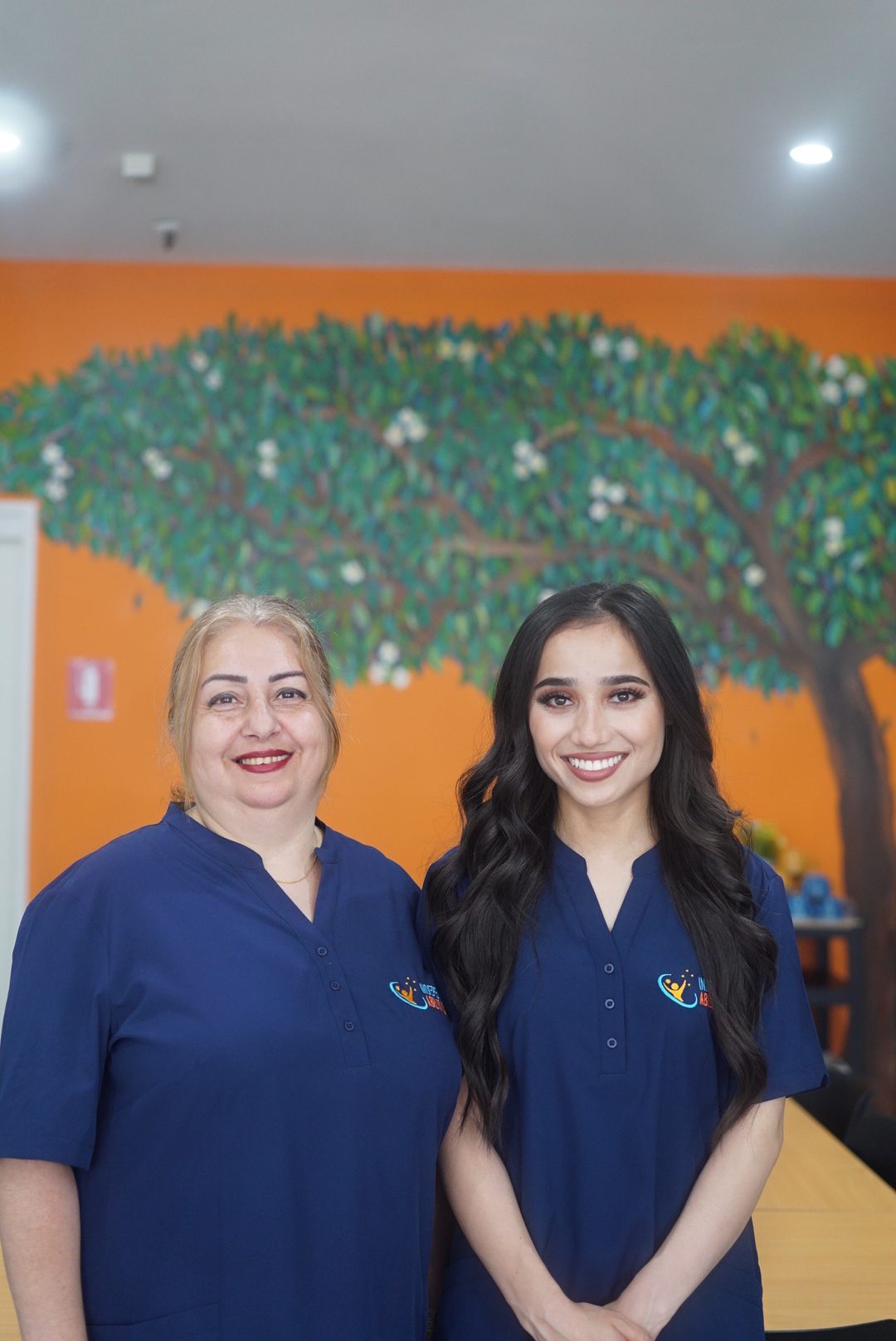NDIS Registered Nurses
Expert Community Nursing & Complex Care from AHPRA registered nurses.
NDIS Nurses
We have a team of highly qualified Registered and Enrolled nurses that provide individualised support plans and care that are effective in helping you achieve your community nursing care NDIS goals and overall NDIS goals. They also provide home care nursing as required.
Services we provide:
- Individualised support plans
- Continuous assessment and management of ongoing illness
- Wound care
- Skin integrity assessments
- Swallowing assessments
- Pain management
- In home medication management and administration
- Continence & catheter care
- Stoma/PEG care
- Respiratory support
- Cardiac monitoring
- Post-discharge care
- Palliative care
- Immunisations (if authorised)
- Carer education
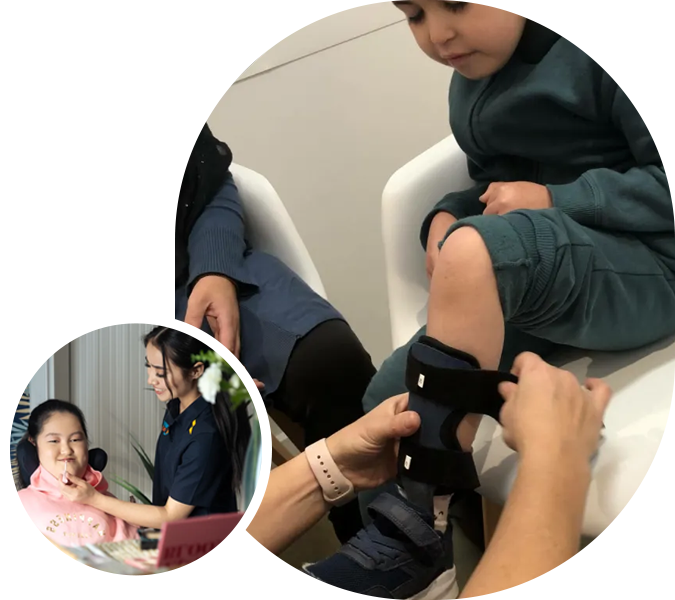
Our Nurses - Registered and Enrolled
- Bachelor of Nursing (Registered Nurse – RN)
- Diploma of Nursing (Enrolled Nurse – EN)
- Current AHPRA Registration (Australian Health Practitioner Regulation Agency)
- Medication Administration & Management training
- NDIS Worker Orientation Module
- First Aid & CPR certification
- Manual Handling and Infection Control training
- Specialist training relevant to participant needs.
Registered NDIS Nurses Supporting Your Health and Independence
At Independent Ability Care, our team of highly qualified AHPRA registered nurses deliver compassionate, personalised nursing care tailored to your specific needs. As trusted NDIS nursing providers, we work with you to develop individualised support plans that help you achieve your health and community care goals.
What Our Complex Care Nursing Services Include
Our skilled registered nurses NDIS team offers a wide range of nursing supports, including:
- Development and management of individualised nursing care plans
- Continuous assessment and management of ongoing health conditions
- Wound care and skin integrity assessments
- Swallowing assessments
- Pain management
- In-home medication management and administration
Our nurses provide expert home care nursing designed to maintain your health and wellbeing while supporting your independence. Read More
How We Manage Your Health Needs
We understand that managing complex health conditions at home requires professional and attentive care. Our nurses continuously monitor your health, provide timely healthcare interventions, and collaborate with your broader health team to ensure you get the support you need.
Importantly, we respect your choices and autonomy — we provide information and care without pressure or limitations on your decisions.
With standardised clinical protocols and fully qualified registered nurses NDIS, you’re always in safe hands.
What Nursing Supports Does the NDIS Cover?
The NDIS covers nursing supports that help with your ongoing disability-related needs and functional challenges. However, it usually doesn’t fund nursing care for short-term medical issues or health conditions that aren’t related to your disability.
For example, post-operative wound care or hospital-in-the-home services are usually funded by the health system, not the NDIS.
The NDIS may consider funding nursing supports if:
- Your disability prevents you from managing your health needs independently
- You require ongoing functional support related to your disability
- Other health services are not appropriate or available to meet your disability-related needs
Understanding the Difference: NDIS Nursing Care vs. Health System Care
A recent NDIS case example clarifies this distinction:
If you have a wound unrelated to your disability, community nursing to manage it will likely be funded by the health system. But if your disability causes challenges in managing your wound or health condition, the NDIS might fund additional support workers or nursing visits related to those disability needs.
Why Choose Independent Ability Care for Your NDIS Nursing Care in Melbourne
- Experienced, qualified NDIS registered nurses committed to person-centred care
- Respectful, culturally sensitive nursing services delivered by a bilingual team fluent in Dari, Hazaragi, Farsi, Hindi, Urdu, and Tagalog
- Collaborative approach working with your healthcare providers and support team
- Tailored nursing care that aligns with your NDIS plan and goals
- Reliable home nursing support promoting your independence and wellbeing
Ready for trusted, professional NDIS nursing care in Melbourne? Contact Independent Ability Care today to discuss how our experienced nurses can support your health and independence at home.
FAQs
Are nursing services covered by the NDIS?
NDIS funds nursing supports related to disability management and ongoing functional impairment, but not acute medical treatment or hospital care.
How do I know if my nursing care will be funded by NDIS or the health system?
Support that is directly related to your disability needs may be funded by the NDIS, while acute or post-acute medical care is usually covered by the health system. Our experienced NDIS support coordinators can help assess your situation, guide you through the process, and ensure you access the right support from the appropriate system.
Can Independent Ability Care provide medication management and wound care?
Yes, our qualified registered nurses NDIS offer medication administration and wound care as part of personalised nursing supports. Read Less

Managing your health conditions

We ensure that clients with specific medical needs receive the appropriate care they need e.g., home care nursing.

We are always looking out for you and will continuously provide home nursing care and healthcare interventions when needed.

We will not influence your decision or limit your access to relevant information and care you need.

You are always in safe hands with our standardised protocols and qualified nurses.
What our AHPRA-registered nurses do
We deliver safe, evidence-based nursing in your home: comprehensive assessment and care planning, medication management (including insulin), wound and skin care, continence and catheter support, enteral feeding, chronic disease monitoring, palliative care, and health education. We coordinate closely with your GP and allied health so your plan, goals and daily routines stay aligned.
You Have Rights and We Are Here to Support
It is important to us that you know and understand your rights, we are here to support you and to provide encouragement, guidance, home nursing services and assistance in any choice that you make. We are continuously reviewing, improving and enhancing the home care nursing support that you receive.
Our Promise to You

Choice and Control
“Your Choice of Care.” At IAC, you manage all your supports. We are flexible in providing care quality and understand the importance of your selection and management of support delivery.

Participant Focus
“Focus on what the participant wants, and we deliver” We understand participant’s focus and our job is to focus on what the participant wants and support them with the best possible outcome.

Growth
“Accept the pace of your journey.” Everyone has their own journey and their own way of reaching their goals, we are here to go through this journey with you and support your growth.

Diversity
‘‘We are all the same.’’ At IAC, we have enthusiastic staff from different cultures who are proud of what they do. We have created an inclusive environment that promotes equality for all stakeholders and staff.

Participants Reviews

I live alone and the support I receive from Independent Ability Care is great. They have been coordinating my supports and making sure my pain is managed and all my supports are communicating I am greatly thankful.

Independent Ability Care is exceptional in their services. Having experienced a poor understanding and service from my previous provider, I can confidently say that Independent Ability Care is a company that truly cares.

Independent Ability Care has great support coordination services, I have been able to communicate to my support coordinator, Masoumeh, and build a good relationship. She has helped me maintain my referrals and have continuous supports. In comparison to my previous provider, I can see immense difference in the support and in turn that has affected how confident I feel to lead my life.

Honestly best company, all I see is happy participant and best services. The directors are in contact with support workers all the time, day and night, their passion is noticeable about NDIS, you will not have seconds doubts coming into this company.
WE ALL LOVE YOU ❤️
Why Choose Us?
Our values are at the centre of everything we do
for our participants, their families and the community.

Clear Communication
We as NDIS service providers value the importance of a clear and open communication with our participant, their family & our staff within the wider community. We hear you.
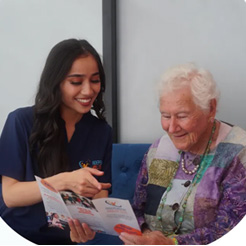
Person-Centered Care
Our dedicated and passionate NDIS service providers and staff have one common goal when working with you: To provide you the dedicated care you deserve in a respectful and empowering manner at all times.

Dedication
Our devoted and passionate NDIS registered providers of IAC have one common goal: To provide you with the dedicated care you deserve in a respectful and empowering manner at all times.
Frequently Asked Questions
Do you offer services in languages other than English?
Yes we do! We speak English, Dari, Persian and Hindi.
How does your pricing work, and does it align with the NDIS Price Guide?
We need to understand what care you need and your goals before recommending our services. Once we have a complete understanding, we ensure that the recommended services are affordable within your NDIS plan budget and the NDIS price guide; that there are no hidden costs.
How are your staff trained, and can I choose who works with me?
We ensure that our staff have the qualifications for the job and they receive regular trainings so as to ensure continuous improvement of our services. As long as the support coordinator possess the right qualifications to provide you the care you need (depending on the service required), we are happy for you to make the choice.
What are NDIS nursing services?
Who is eligible for nursing care under the NDIS?
Eligibility for nursing services under the NDIS follows the general access criteria, plus the “reasonable and necessary” criteria. Key points:
- The person must be an NDIS participant (or become one) – i.e., they meet the NDIS access rules.
- The nursing support must be related to the participant’s disability (i.e., the disability results in functional impacts which the nursing support helps address).
- The support must be reasonable and necessary, meaning it helps pursue the participant’s goals, it represents value for money, and it is not more appropriately funded by another system (e.g., the public health system).
So in simple terms: a participant may have nursing in their plan if they have a disability which affects their functional capacity, they require ongoing nursing-type supports (not just a one-off acute issue) and the supports are not “standard health system” services.
How do I access NDIS nursing services?
- The participant has an NDIS plan (or is applying for one) that includes funding for disability-related health supports (which could include nursing).
- They (or their nominee/support coordinator) identify a need (e.g., in-home nursing) and select a provider who can deliver nursing services.
- The participant’s plan manager/support coordinator helps ensure the support is included in the plan budget under the correct category/support item (the “Support Catalogue”/“Pricing Arrangements and Price Limits” lists support items for nursing/health supports).
- The participant enters into a service agreement with the provider. If the provider is NDIS-registered the visit/booking is arranged, and the provider bills against the participant’s funding.
- Ongoing monitoring and plan review: As needs change, supports (including nursing) may be increased, decreased or changed at plan review.
What types of nursing supports are covered by the NDIS?
Examples of nursing/disability-related health supports that may be covered:
- Wound and pressure injury care, skin integrity supports.
- Dysphagia/swallowing supports related to disability.
- Continence support when related to disability.
- Diabetes management supports when they are disability-related under certain conditions.
- General in-home nursing care aimed at maintaining or improving functional capacity, supporting daily life, preventing hospitalisations – as long as the support is disability-related and meets the criteria.
What is generally not covered: purely acute hospital care, standard GP/medical specialist treatment, medications via PBS, diagnostic and treatment services under Medicare/health system.o.
What is the difference between community nursing and clinical nursing?
The NDIS itself doesn’t fully define “community nursing” vs “clinical nursing” in its published guidelines, but we can infer differences relevant to the NDIS context:
- Community nursing: Nursing services delivered in the home, in the community, focusing on supporting everyday functional living, monitoring, prevention, and coordination of care rather than acute hospital treatment. For example, wound care at home, monitoring chronic disability-related conditions, supporting daily living.
- Clinical nursing: More medically-oriented nursing services, possibly involving higher intensity, hospital-style interventions, device management, complex care, often requiring specialist clinical oversight and perhaps closer integration with acute health services.
Does the NDIS fund high-intensity care or complex health needs?
The short answer: Yes, but only when the support relates to the participant’s disability, is ongoing, and is not more appropriately funded by the health system.
The NDIS guideline on “disability-related health supports” says such supports may be delivered by nurses and/or allied health practitioners.
However the guidelines also clarify that the NDIS isn’t intended to take over medical treatment, acute and sub-acute care, hospital stays, GP/medical specialist services, etc.
For very high or complex needs, the plan may include higher-cost supports, but they still must satisfy the “disability-related”, “reasonable and necessary” criteria.
Can nursing be provided as part of in-home care or Supported Independent Living (SIL)?
- If a participant lives in their own home or rental and receives home-based supports the plan may fund nursing visits as part of their disability-related supports.
Are NDIS nursing services available after hospital discharge?
Do NDIS nurses work with doctors or allied health professionals?
Yes, cooperation and coordination with mainstream health services, allied health professionals, doctors and other relevant care providers is very important. The NDIS emphasises that the health system remains responsible for diagnosis, treatment and ongoing chronic disease management, while the NDIS focuses on disability-related supports.
How do I find or choose an NDIS-registered nursing provider?
Here are steps and considerations:
- Check that the provider is NDIS-registered for the correct registration group and that the staff are appropriately qualified (registered nurses, competency in community nursing, disability nursing etc). At Independent Ability Care our team of registered nurses has the appropriate qualifications and we are registered to provide Nursing Services.
- Ask for service specification: What nursing tasks will they perform, how many hours/visits, how they monitor/report, how they coordinate with other services.
- Assess whether they are experienced with the type of needs you have.
- Check the pricing and ensure services align with your plan’s budget and item numbers.
- Look for coordination capability: Can they navigate NDIS plan items, liaise with support coordinators, provide reporting for plan reviews? Our Support Coordinators can help you make sense of your plan and connect you with the right services to achieve your goals
- Confirm availability and continuity: Are they able to deliver in-home or SIL settings as required, offer emergency/back-up support, flexible scheduling?
- Ensure service alignment with the participant’s goals in the plan: the nursing service should clearly support the functional/participation goals in the NDIS plan.
- It may also be worth asking for references or checking what other supports they provide, how they manage complex care roles, etc.
What is the difference between an Enrolled Nurse (EN) and a Registered Nurse (RN) under the NDIS?
Both Enrolled Nurses (ENs) and Registered Nurses (RNs) play an important role in supporting NDIS participants with clinical care, but there is a difference in their qualifications and scope of practice.
Enrolled Nurses (ENs) hold a diploma-level qualification and must work under the supervision of a Registered Nurse. They can provide a wide range of clinical tasks such as wound care, medication administration, and health monitoring.
Registered Nurses (RNs) hold a university degree and have a broader scope of practice. They can complete complex assessments, create care plans, manage high-intensity supports, and provide clinical oversight for other staff.
At Independent Ability Care, we provide both EN and RN support depending on your needs, ensuring every participant receives safe, appropriate, and clinically-led care.
How do I get NDIS funding for nursing services?
Nursing support is usually funded under Capacity Building (Improved Daily Living) or Core Supports (Assistance with Daily Life), depending on the level of care required.
If you have complex medical needs, high-intensity care, or require ongoing clinical monitoring, the NDIS may fund nursing as a reasonable and necessary support.
To access funding, you will need:
Evidence of medical need, e.g. letters from your GP or specialist
A current NDIS plan or review request
A provider quote or service recommendation
Our team can help you gather the right evidence, identify the correct funding category, and work with your Support Coordinator to request nursing supports in your plan.
What is High Intensity Daily Personal Activities (HIDPA) and how does your team manage it?
High Intensity Daily Personal Activities (HIDPA) are supports that involve higher clinical risk, such as:
Complex bowel care
Enteral feeding
Tracheostomy care
Ventilation and respiratory support
Complex wound care
Sub-cutaneous injections or medication management
These supports must be delivered by trained and competent support workers or qualified nurses, following strict safety and clinical standards.
As an NDIS registered provider in Melbourne, Independent Ability Care:
Conducts clinical risk assessments for every high-intensity support
Uses Registered Nurses to supervise and train support workers
Develops individualised care plans and reporting processes
Ensures all team members meet the NDIS Practice Standards for HIDPA
What is the difference between Core Supports and Capacity Building funding?
Core Supports
These cover everyday assistance, such as personal care, community access, and some nursing tasks required for daily living. Core funding is flexible and can often be used across several categories.
Capacity Building Supports
These help you build skills, improve independence, and work towards long-term goals. Capacity Building is not flexible between categories – each budget has a specific purpose. Nursing is often funded under Improved Daily Living, particularly for assessments, care planning, or specialist clinical support.
If you’re unsure which budget applies to your needs, our team can review your plan and help you understand what funding is available for nursing services.
Ready to discover the secret to stress-free NDIS support?
Get Started – Book a Callback!
We understand every participant has different communication needs. If you prefer email or another contact method, simply let us know in the comments and our team will follow your preference.
Other Services

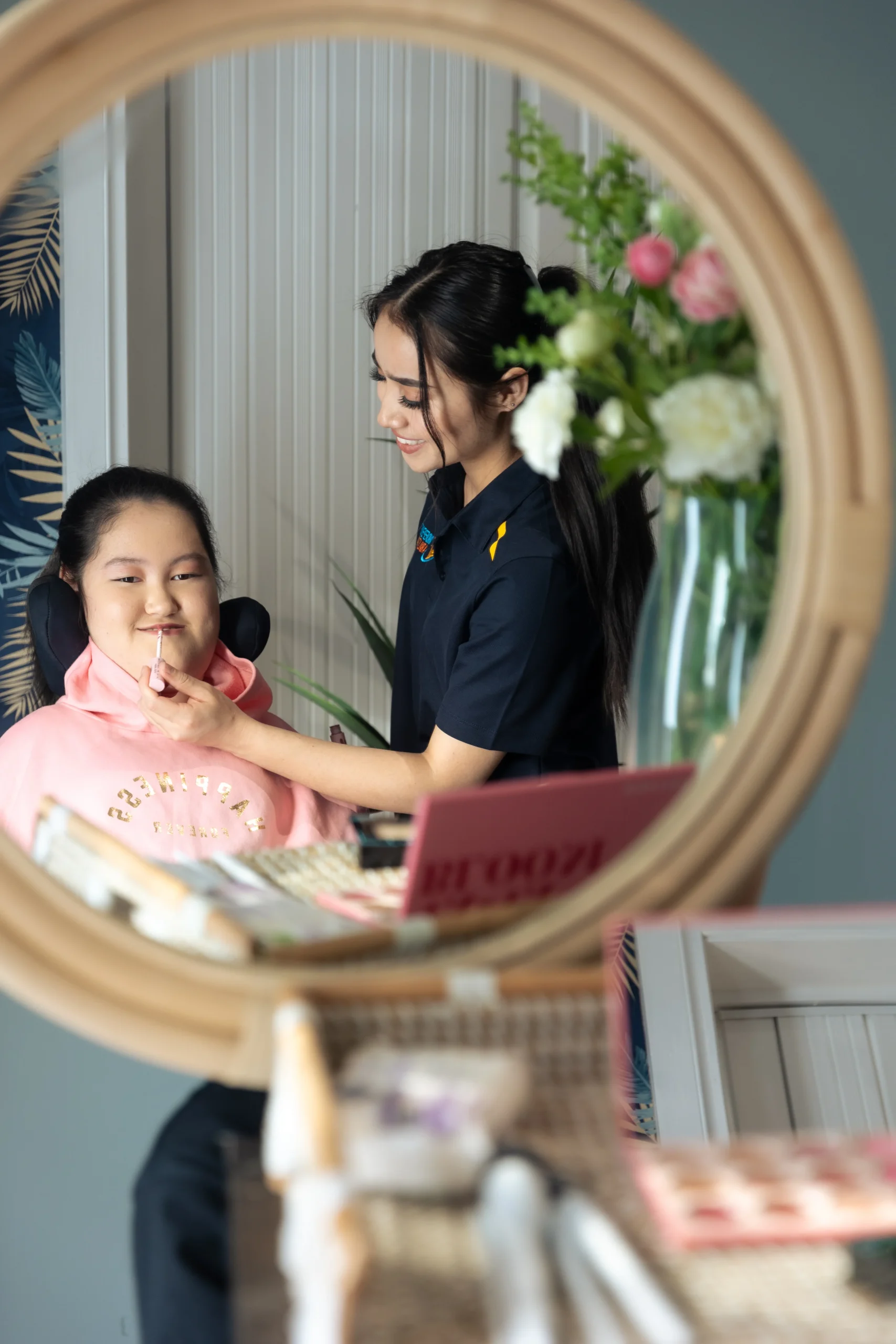

NDIS Support for Intellectual Disabilities
Develop core life skills to easily achieve your goals.



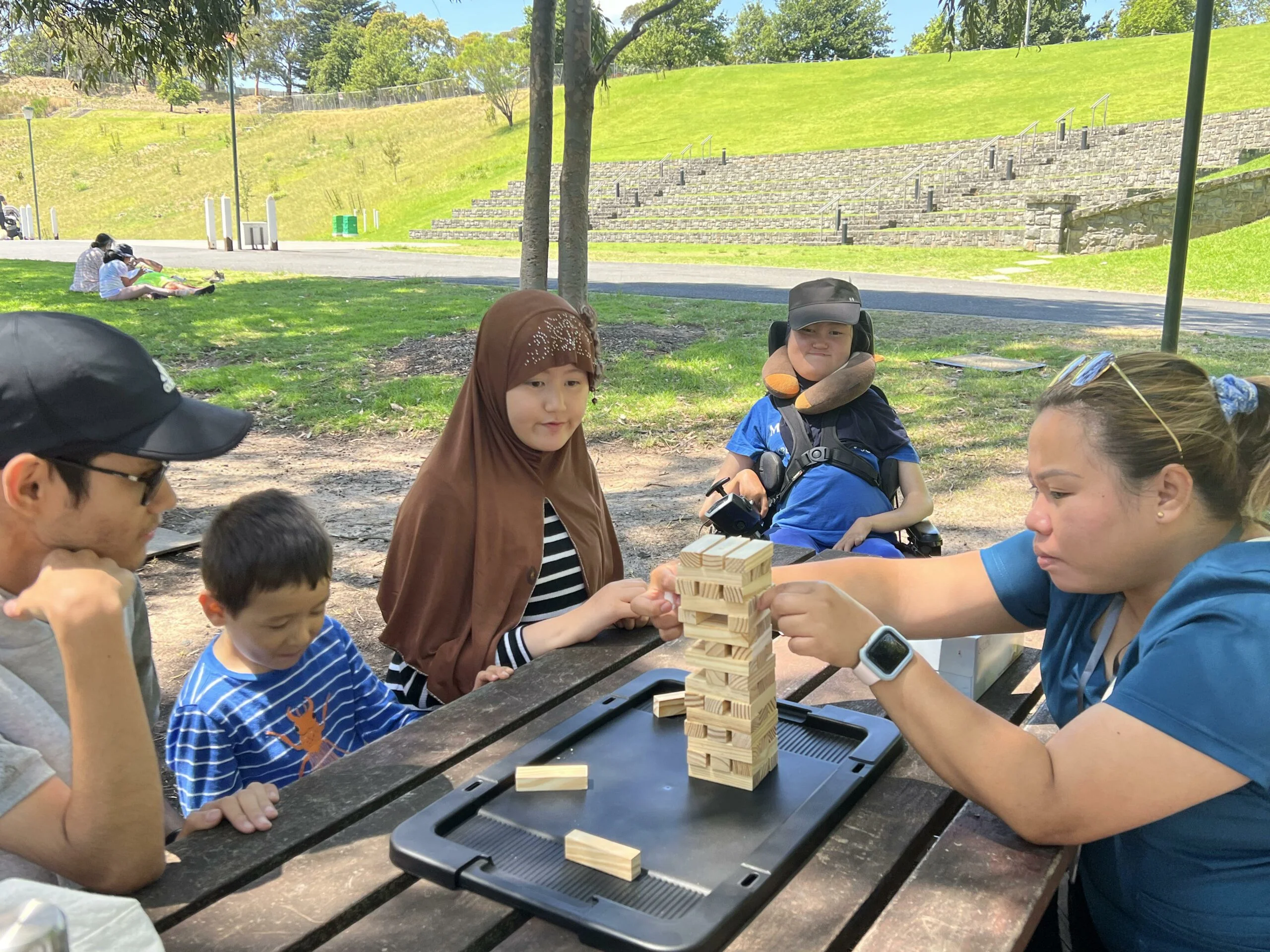
NDIS Social and Community Participation
Choose the activity you want to be involved in and we'll make it happen.

NDIS Specialist Support Coordination
Connect with the community and maximise your NDIS plan.
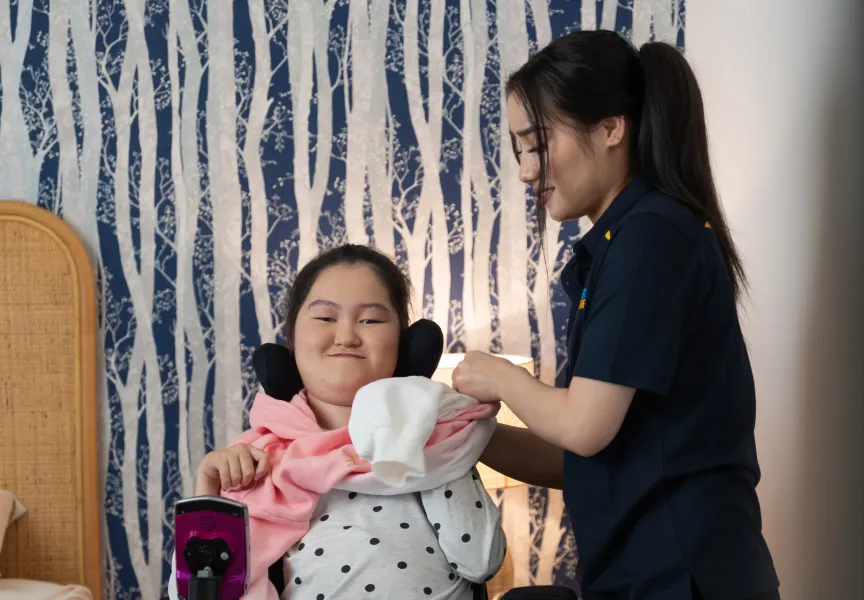

NDIS Transport Providers
Learn how to access your community and pursue greater opportunities.

NDIS Home Maintenance
Offering the best home maintenance and cleaning service in Melbourne.

